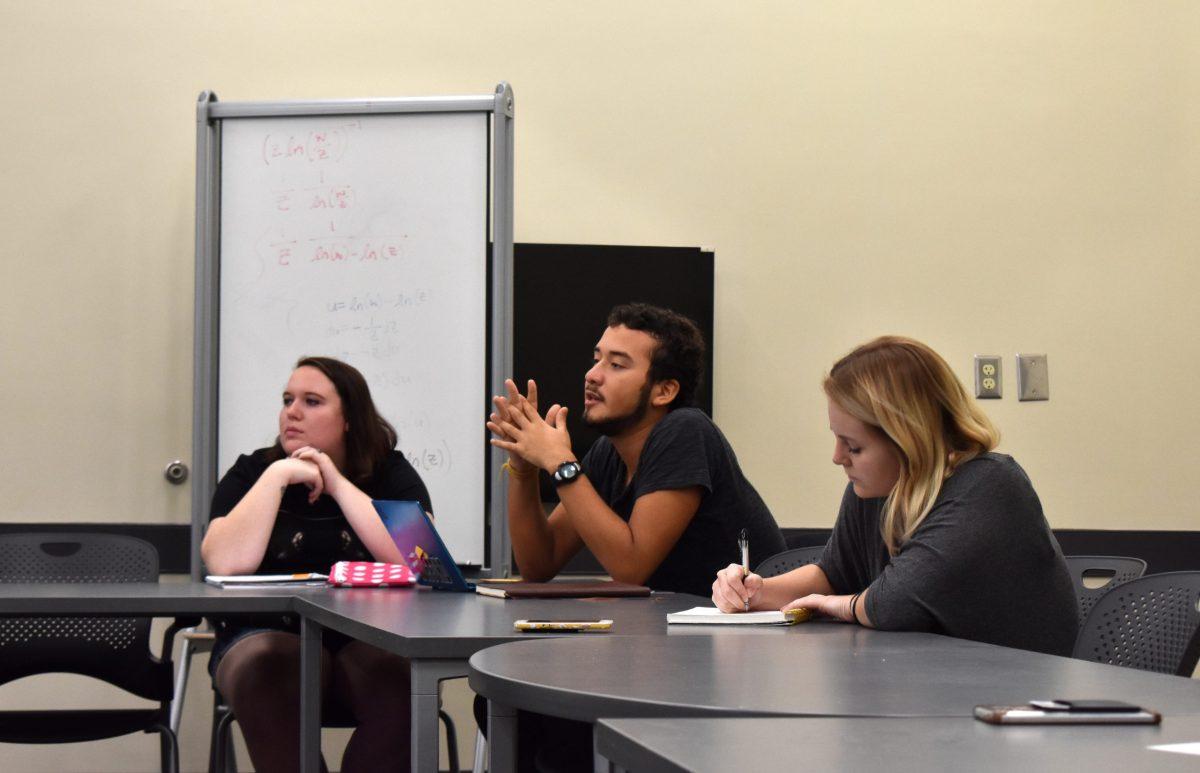A review of the LGBTQIA ally training
44.36% of students believe that Wofford should make a greater effort to recruit and retain students that identify as lesbian, gay and bisexual. 37.17% of students believe that Wofford should make a greater effort to recruit and retain students that identify as transgender. If students wish to see these changes on campus, why did only six students participate in the LGBTQIA Ally Training on Oct. 9?
While many students believe in stronger efforts to recruit and retain specific students, even more students do not believe that Wofford needs to make these efforts. In 2014, Wofford was ranked in the Top 10 of the most LGBT unfriendly schools in the nation by Princeton Review. A 2016 Wofford survey revealed more about the LGBTQIA climate on campus, with responses like: “I considered transferring to a different school in the hopes that I would find a place more accepting of my sexuality,” “I wouldn’t think LGBT people would enjoy Wofford; they would want a more vibrant environment” and “I’m gay and there’s barely any LGBTQIA people on campus. I wish there were others like me here.”
These statistics and surveys were just one part of the presentation given by resident director, Dylan Lawing, at the LGBTQIA Ally Training. Not only did he present statistics about Wofford’s campus, but he also attempted to articulate the LGBTQIA experience and give insight into how to become a proper ally. “We want to foster a college climate where each individual is treated with dignity, respect and also, where LGBTQIA students feel accepted on campus…but disclaimer: I’m not going to force [being an ally] on any group or individual.”
He shared some of the biggest issues for LGBTQIA students, including internalized homophobia, rejection, struggle with faith, oppression and loss of financial support. These issues can lead to reluctance about coming out, which is why Lawing emphasized the importance of offering support and not forcing anyone to come out before they are ready.
Support is just one of the ways that people can be allies to those in the LGBTQIA community. Other than that, Lawing talked about actively listening, which is not the same as counseling, acknowledging the courage it takes to come out and reporting harassment. But why is being an ally such an important task? According to the National Gay and Lesbian Task Force, about 20% of LGBTQIA faculty members and students reported they feared for their physical safety on campus, while 43% consider their campus climate to be homophobic.
In an environment in which students already feel that their acceptance at Wofford is not guaranteed, Lawing spoke to the importance of broadcasting support and creating a community for LGBTQIA students and faculty to feel accepted. By encouraging open communication, working with student organizations and educating students, the Office of Diversity and Inclusion hopes to foster an environment welcoming to all.
Photo Caption: Students learn about current issues in the LGBTQIA community and discuss ways to be an ally on campus and in life.





























